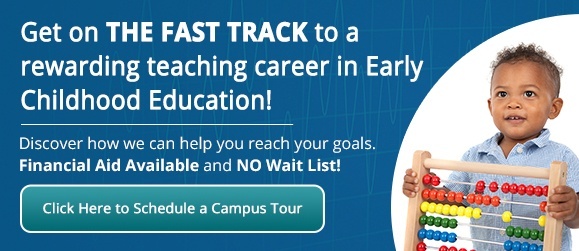Essential Skills for New Preschool Teachers
Posted On Mar 27, 2024
Unlocking the potential of young minds is a complex and rewarding endeavor. This requires a diverse set of skills that go beyond mere passion. As an aspiring Early Childhood Educator, your success hinges on mastering certain core competencies. These skills are not only crucial for your professional development but also for fostering holistic growth in your young learners. Let's delve into the essential skills that every new preschool teacher needs to excel in their role and make a lasting impact in the classroom and beyond.

Effective Communication: The Heart of Learning
One of the most critical skills in early childhood education is effective communication. This encompasses both verbal and non-verbal communication methods. You must be able to:
- Mastering the art of communication means you can clearly articulate instructions and feedback in a manner that resonates with young children, ensuring they comprehend and follow through with ease.
- Active listening is essential in identifying and addressing the needs and concerns of your students, fostering an environment of trust and understanding that supports their growth and learning.
- Employing positive body language and facial expressions plays a crucial role in creating a welcoming and encouraging classroom atmosphere, helping children feel valued, understood, and motivated to engage.
Effective communication fosters a nurturing learning environment, promoting trust and understanding between you and your students.
Empathy: Understanding Each Child's World
Empathy is the ability to understand and share the feelings of another. In the context of preschool education, it involves:
- Recognizing the unique emotional needs of each child involves observing and understanding their individual feelings, ensuring that each student feels seen and supported in their emotional journey.
- Tailoring your approach to meet these needs means adjusting your teaching style and interactions to accommodate the diverse emotional landscapes of your students, enhancing their learning experience.
- Creating an inclusive classroom environment requires deliberate efforts to foster a sense of belonging and acceptance, ensuring every child feels valued and understood, regardless of their background or abilities.
By demonstrating empathy, you help children develop their emotional intelligence, a key component of their holistic development.
Adaptability: Thriving in a Dynamic Environment
Preschool classrooms are dynamic, ever-changing environments. To thrive, you must be adaptable, and ready to:
- Adapting your teaching strategies to accommodate different learning styles involves understanding and implementing various instructional methods that cater to the visual, auditory, and kinesthetic needs of each student, enhancing their learning potential.
- Responding to unplanned events with creativity and poise means leveraging unexpected situations as teaching moments, and using innovative thinking to turn challenges into valuable learning opportunities for your students.
- Embracing change and viewing it as an opportunity for growth encourages a flexible and forward-thinking mindset, both in yourself and your students, fostering resilience and adaptability in the face of new challenges.
Adaptability ensures that your classroom remains a vibrant, engaging place for young learners, regardless of the challenges that arise.
Creativity: Sparking Imagination and Curiosity
Creativity is not just about arts and crafts; it's a vital skill for problem-solving and innovation in teaching. You should strive to:
- Incorporating creative activities that stimulate children's imagination and curiosity involves designing tasks that intrigue and excite young minds, prompting them to explore and question the world around them more deeply.
- Using inventive teaching methods to make learning fun and engaging requires crafting lessons that captivate students' interests, and employing games, storytelling, and hands-on projects to transform education into an enjoyable experience.
- Encouraging creative thinking among your students by prompting them to envision multiple solutions to problems, question conventional wisdom, and explore new ideas, helps them to perceive a world filled with endless possibilities and opportunities for innovation.
By fostering a creative learning environment, you inspire children to explore, discover, and learn in ways that captivate their minds and spirits.
The Power of Patience and Perseverance
Patience and perseverance are indispensable qualities for any educator, especially those working with young children. These qualities enable you to:
- Managing classroom challenges with calm and grace involves maintaining composure and patience during difficult situations, and demonstrating to students how to navigate obstacles with a positive and constructive attitude.
- Continuing to strive for each child's progress, even when faced with setbacks, means consistently supporting and motivating every student, recognizing their efforts, and adapting strategies to meet their evolving needs.
- Building a classroom atmosphere of persistence and resilience requires fostering an environment where challenges are seen as opportunities for learning and growth, encouraging students to persevere through difficulties and celebrate their perseverance and achievements.
Demonstrating patience and perseverance teaches your students the value of hard work and determination in achieving their goals.
Cultivating a Love for Learning
Ultimately, one of your primary goals as an Early Childhood Educator is to instill a lifelong love of learning in your students. This requires:
- Creating engaging and meaningful learning experiences involves designing activities that are both informative and captivating, ensuring that each lesson resonates with students and contributes to their overall development.
- Encouraging curiosity and questioning as part of the learning process means fostering an environment where students feel free to explore, ask questions, and challenge ideas, enhancing their critical thinking skills.
- Celebrating each child's achievements, no matter how small, involves recognizing and appreciating every milestone and effort, which boosts confidence and reinforces the value of persistence and hard work in achieving goals.
When children develop a love for learning early on, it sets the foundation for their future educational and personal success.
Unlocking Success in Early Childhood Education
As you embark on your career as an Early Childhood Educator, remember that the skills discussed here are interrelated and equally important. Effective communication, empathy, adaptability, creativity, patience, perseverance, and a commitment to fostering a love for learning are all critical in shaping the minds and hearts of the youngest learners. By mastering these skills, you elevate your impact in the classroom, ensuring that each child receives the care, support, and guidance they need to flourish.
If you're passionate about making a difference in the lives of young children and are eager to develop these essential skills, Contact Us to learn more and speak with admissions today!
Recent Posts
- How Accessibility to Faculty Enhances ECE Degree Program
- Early Childhood Education Courses Lead to Great Teaching Careers
- Insights for Effective Preschool Teaching
- Online vs. In-Person Medical Assistant Training: Which Is Right for You?
- Preschool Teachers Provide Hands-On Learning for Future Innovators
Categories
- Flexible Class Schedule
- Early Childhood Education
- Clinical Medical Assistant
- Medical Assistant
- Accredited
- Medical Assistant Program Toledo, OH.
- MA Program
- ECE
- preschool teacher
- CMA
- Administrative Medical Assistant
- Practical Nursing
- Nursing School
- Nursing
- Early Childhood Education Degree
- LPN to RN
- Certified Medical Assistant
- Early Childhood Educator
- Become a Teacher
- Nursing Career
- RN
- Childcare Teacher
- Nursing School Toledo
- Practical Nurses
- Childcare Director
- Nursing Education
- Registered Nurse
- LPN
- Toledo Ohio Nursing School
- Teaching Degree
- Become a Nurse in 12 Months
- Nursing Career Opportunities
- Nursing School Preparation
- Practical Nursing Jobs
- Medical Coding and Billing
- DayCare Teacher
- Nursing Salaries
- Nursing School Costs
- PN to RN
- Career Training
- Nursing School Tuition
- Nursing School Financial Aid
- Phlebotomist Technician
- Practical Nurse Salaries
- EKG Technician
- nurse burnout
- #nursesunite
- Insider
- Phlebotomy Technician Salary
- Uncategorized
- resume
Contact us
For News, Resources, and Conversations:
Get your FREE 2022 Athena Career Academy Program Guide
The best way to get to know Athena Career Academy is to see what we offer. Download our program guide to learn more. Take the fast track to your future today!
An exciting career can be yours in just one year!
Discover how Athena Career Academy can help you reach your medical career goals fast.
Accrediting Agencies
Athena Career Academy is accredited by the Commission of the Council on Occupational Education. The school is registered with the Ohio Board of Career Colleges and Schools; State of Ohio – School Registration Number – 10-09-1943T and operates under the authority of the Ohio Board of Nursing. Please contact the Student Operations Manager for more information.



